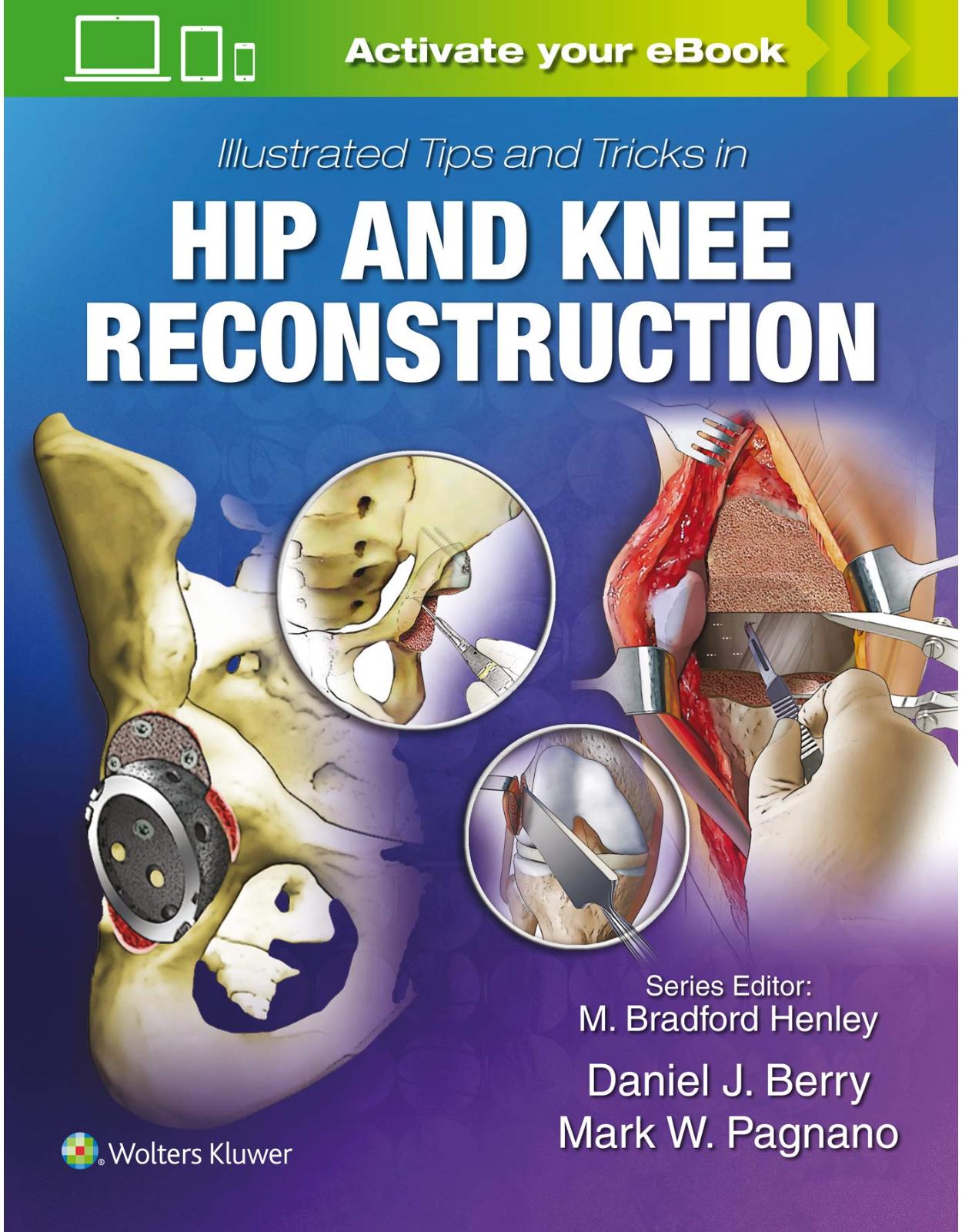
Illustrated Tips and Tricks in Hip and Knee Reconstructive and Replacement Surgery
Livrare gratis la comenzi peste 500 RON. Pentru celelalte comenzi livrarea este 20 RON.
Disponibilitate: La comanda in aproximativ 4-6 saptamani
Editura: LWW
Limba: Engleza
Nr. pagini: 600
Coperta: Hardcover
Dimensiuni: 15.3 x 2.5 x 22.9 cm
An aparitie: 25 Oct. 2019
Part of the popular Tips and Tricks series, Illustrated Tips and Tricks in Hip and Knee Reconstruction provides succinct and practical advice acquired from years of professional practice in hip and knee surgery. Led by Drs. Daniel Berry and Marc Pagnano of the Mayo Clinic, this visually stunning reference focuses exclusively on detailed descriptions of technical tips and tricks for all aspects of hip and knee reconstruction. This unique approach is highly useful to orthopaedic surgery fellows and residents – anyone who would benefit from exposure to the wisdom that experienced attending surgeons pass on to those who are training in this complex field.
- Presents practical knowledge and insight gleaned from years of surgical experience, with content oversight provided by Dr. Daniel Berry (hip) and Dr. Marc Pagnano (knee).
- Takes a unique issue/solution approach, offering up-to-date guidance that can be applied in contemporary surgical practice.
- Features concise, bulleted text and hundreds of high-quality illustrations.
- Covers total hip and knee arthroplasties, revision hip and knee arthroplasties, hip arthroscopy, hip resurfacing, osteotomies for the hip and knee, unicondylar knee replacement, and more.
Enhance Your eBook Reading Experience:
- Read directly on your preferred device(s), such as computer, tablet, or smartphone.
- Easily convert to audiobook, powering your content with natural language text-to-speech.
Table of Contents:
1. Cover
2. Title Page
3. Copyright
4. Dedication
5. Foreword
6. Acknowledgments
7. Contributors
8. Table of Contents
9. Part I Primary Total Hip Arthroplasty
10. Section A Preoperative Planning/Templating for Primary THA
11. 1 Preoperative Planning and Templating for Primary Total Hip Arthroplasty
12. Introduction
13. History
14. Physical Examination
15. Radiographs
16. Templating
17. Section B Surgical Exposures
18. 2 Posterior Approach
19. Key Concepts
20. Sterile Instruments and Implants
21. Preoperative Planning
22. Bone, Implant, and Soft Tissue Techniques
23. Introduction
24. Technique
25. Postoperative care
26. 3 Anterolateral Approaches
27. Key Concepts
28. Sterile Instruments and Implants
29. Instruments
30. Implants
31. Positioning
32. Surgical Approach (for Lateral Decubitus Position; Modify as Needed for Supine Position)
33. Postoperative Care
34. 4 Direct Anterior Approach
35. Key Concepts
36. Indications
37. Technical Considerations
38. Sterile Instruments and Implants
39. Instruments
40. Implants
41. Positioning
42. Surgical Approach
43. 5 Transtrochanteric Approaches
44. Key Concepts
45. Sterile Instruments and Implants
46. Positioning
47. Surgical Approaches
48. Preoperative Planning
49. Bone, Implant, and Soft Tissue Techniques
50. Conventional Greater Trochanteric Osteotomy
51. Greater Trochanteric Slide
52. Extended Greater Trochanteric Osteotomy
53. Postoperative Management
54. Section C Primary THA Implants
55. 6 Uncemented Acetabular Components
56. Key Concepts
57. Sterile Instruments and Implants
58. Positioning
59. Surgical Approaches
60. Preoperative Planning
61. Bone, Implant, and Soft Tissue Techniques
62. Postoperative Care
63. 7 Uncemented Tapered Stems
64. Key Concepts
65. Sterile Instruments and Implants
66. Surgical Approaches
67. Preoperative Planning
68. Bone, Implant, and Soft Tissue Techniques
69. Ream and Broach
70. Broach Only
71. Postoperative Care
72. 8 Uncemented Cylindrical Stems
73. Key Concepts
74. Sterile Instruments and Implants
75. Surgical Approaches
76. Preoperative Planning
77. Bone, Implant, and Soft Tissue Techniques
78. Femoral Neck Osteotomy
79. Exposure
80. Starting Point
81. Reaming
82. Broaching
83. Trialing and Radiographs
84. Final Implantation
85. Postoperative Care
86. 9 Uncemented Modular Stems
87. Key Concepts
88. Sterile Instruments and Implants
89. Instruments
90. Implants
91. Positioning
92. Surgical Approaches
93. Preoperative Planning
94. Bone, Implant, and Soft Tissue Techniques
95. Postoperative Care
96. 10 Uncemented Tapered Fluted Stems
97. Key Concepts
98. Sterile Instruments and Implants
99. Surgical Approaches
100. Preoperative Planning
101. Bone/Implant/Soft Tissue Techniques
102. Postoperative Management
103. 11 Cemented Stems
104. Key Concepts
105. Sterile Instruments and Implants
106. Positioning
107. Surgical Approaches
108. Preoperative Planning
109. Bone, Implant, and Soft Tissue Techniques
110. Postoperative Care
111. Section D Primary THA in Specific Conditions
112. 12 Acute Hip Fracture
113. Key Concepts
114. Sterile Instruments and Implants
115. Surgical Approaches
116. Preoperative Planning
117. Bone, Implant, and Soft Tissue Techniques
118. Postoperative Care
119. 13 Failed Previous Hip Fracture
120. Key Concepts
121. Sterile Instruments/Implants
122. Positioning
123. Surgical Approaches
124. Preoperative Planning
125. Bone/Implant/Soft Tissue Techniques
126. Failed Femoral Neck Fracture
127. Failed Intertrochanteric Fracture
128. Postoperative Care
129. 14 Previous Acetabular Fracture
130. Key Concepts
131. Sterile Instruments and Implants
132. Surgical Approaches
133. Preoperative Planning
134. Bone, Implant, and Soft Tissue Techniques
135. Postoperative Care
136. 15 Hip Dysplasia
137. Key Concepts
138. Sterile Instruments and Implants
139. Surgical Approaches
140. Preoperative Planning
141. Bone, Implant, and Soft Tissue Techniques
142. Postoperative Care
143. 16 High Hip Dysplasia
144. Key Concepts
145. Sterile Instruments and Implants
146. Positioning
147. Surgical Approaches
148. Preoperative Planning
149. Bone/Implant/Soft Tissue Techniques
150. Postoperative Management
151. 17 Acetabular Protrusio
152. Key Concepts
153. Sterile Instruments and Implants
154. Instruments
155. Implants
156. Positioning
157. Surgical Approaches
158. Preoperative Planning
159. Bone/Implant/Soft Tissue Techniques
160. Postoperative Care
161. 18 Proximal Femoral Deformity
162. Key Concepts
163. Sterile Instruments/Implants
164. Positioning
165. Surgical Approaches
166. Preoperative Planning
167. Bone, Implant, and Soft Tissue Techniques
168. Proximal Level Deformities
169. Distal Level Deformities
170. Subtrochanteric Level Deformities
171. If a Corrective Osteotomy Will be Utilized (Figure 18.9)
172. Postoperative Management
173. 19 Previous Hip Fusion
174. Key Concepts
175. Sterile Instruments and Implants
176. Instruments
177. Implants
178. Positioning
179. Surgical Approaches
180. Preoperative Planning
181. Bone, Implant, and Soft Tissue Techniques
182. Acetabular Preparation
183. Femoral Preparation
184. Trialing
185. Wound Closure
186. Postoperative Care
187. 20 Total Hip Arthroplasty for Oncologic Conditions
188. Key Concepts
189. Sterile Instruments and Implants
190. Instruments
191. Acetabular Implants
192. Femoral Implants
193. Positioning
194. Surgical Approaches
195. Preoperative Planning
196. Bone/Implant/Soft Tissue Techniques
197. Cup-Cage Construct
198. Custom Components
199. Femoral Reconstruction for Metastatic Lesions
200. Femoral Reconstruction for Primary Lesions
201. Postoperative Care
202. Part II Revision Total Hip Arthroplasty
203. Section A Preoperative Planning/Templating for Revision THA
204. 21 Preoperative Evaluation, Planning, and Templating for Revision Total Hip Arthroplasty
205. Preoperative Evaluation
206. History
207. Physical Examination
208. Radiographs
209. Tests
210. Preoperative Planning
211. Bone Reconstruction
212. Hip Stability
213. Closure
214. Templating
215. Section B Exposures and Implant Removal in Revision THA
216. 22 Choosing the Exposure
217. Key Concepts
218. Sterile Instruments and Implants
219. Instruments
220. Implants
221. Positioning
222. Surgical Approach
223. Preoperative Planning
224. Record Review
225. Laboratory Workup
226. Imaging
227. Indications
228. Exposure Options: Approaches
229. Direct Anterior Approach
230. Anterolateral Approach
231. Posterolateral Approach
232. Conventional Trochanteric Osteotomy
233. Trochanteric Slide Osteotomy
234. Laterally Based Extended Trochanteric Osteotomy
235. Wagner (Anterior-Based) Extended Trochanteric Osteotomy
236. Transfemoral Approach
237. Revision Scenarios
238. Insert Exchange for Wear/Instability
239. Straight Forward Acetabular Component Revision
240. Complex Acetabular Revision
241. Additional Comments
242. Femoral Revision: Loose Stem/Mild Bone Loss
243. Femoral Revision: Well-Fixed Cemented Stem
244. Femoral Revision: Well-Fixed Uncemented Stem
245. Femoral Revision: With Femoral Bone Deformity
246. Bone, Implant, and Soft Tissue Techniques
247. Postoperative Care
248. 23 Extended Greater Trochanteric Osteotomies
249. Key Concepts
250. Sterile Instruments and Implants
251. Surgical Approaches
252. Preoperative Planning
253. Bone, Implant, and Soft Tissue Techniques
254. Lateral Extended Trochanteric Osteotomy
255. Removal of Stem
256. Closure of an Extended Trochanteric Osteotomy
257. Anterior Extended Osteotomy
258. Postoperative Care
259. 24 Implant Removal
260. Key Concepts
261. Sterile Instruments and Implants
262. Preoperative Planning
263. Bone, Implant, and Soft Tissue Techniques
264. Acetabulum
265. Cemented Polyethylene Cup
266. Monoblock Cementless Cup
267. Modular Cementless Cup, Polyethylene Liner
268. Modular Cementless Cup, Metal Liner (Dual Mobility or Metal-on-Metal Articulation)
269. Femur
270. Cemented Femoral Stem
271. Proximal Porous Coated Cementless Stem
272. Extensively Porous Coated Stem
273. Monoblock Fluted Stem
274. Modular, Fluted, Tapered Stem
275. Conclusion
276. Section C Revision THA Implants
277. 25 Uncemented Hemispherical Cups
278. Key Concepts
279. Sterile Instruments and Implants
280. Implants
281. Positioning
282. Surgical Approaches
283. Preoperative Planning
284. Bone, Implant, and Soft Tissue Techniques
285. Postoperative Care
286. 26 Uncemented Cup With Metal Augments or Structural Graft
287. Key Concepts
288. Sterile Instruments and Implants
289. Surgical Approaches
290. Preoperative Planning
291. Bone, Implant, and Soft Tissue Techniques
292. Postoperative Care
293. 27 Cup-Cage Constructs
294. Key Concepts
295. Sterile Instruments and Implants
296. Surgical Approaches
297. Preoperative Planning
298. Bone, Implant, and Soft Tissue Techniques
299. For the Full Cup-Cage Technique
300. For the Half Cup-Cage Technique
301. Postoperative Care
302. 28 Custom Triflange Implants
303. Key Concepts
304. Sterile Instruments and Implants
305. Instruments
306. Implants
307. Positioning
308. Surgical Approach
309. Preoperative Planning
310. Record Review
311. Laboratory Workup
312. Imaging
313. Indications
314. Component Design
315. Bone, Implant, and Soft Tissue Techniques
316. Postoperative Care
317. 29 Fully Porous Coated Stems
318. Key Concepts
319. Sterile Instruments and Implants
320. Surgical Approaches
321. Preoperative Planning
322. Bone, Implant, and Soft Tissue Techniques
323. Exposure and Implant Extraction
324. Prophylactic Cerclage
325. Reaming (Straight Stems)
326. Reaming (Curved Stems)
327. Trialing and Radiographs
328. Final Implantation
329. Osteotomy Fixation
330. Postoperative Care
331. 30 Fluted Tapered Modular Stems
332. Key Concepts
333. Sterile Instruments and Implants
334. Instruments
335. Implants
336. Positioning
337. Surgical Approaches
338. Preoperative Planning
339. Bone/Implant/Soft Tissue Techniques
340. Postoperative Care
341. 31 Cemented Stems
342. Key Concepts
343. Indications
344. Contraindications
345. Sterile Instruments and Implants
346. Surgical Approaches
347. Radiographic Evaluation—Evaluate Serial Radiographs of the Arthroplasty if Possible
348. Review prior operative reports
349. Surgical Procedure
350. Special Cases
351. Results
352. Postoperative Management
353. 32 Impaction Bone Grafting With Cemented Stems
354. Key Concepts
355. Sterile Instruments and Implants
356. Surgical Approaches
357. Preoperative Planning
358. Bone, Implant, and Soft Tissue Techniques
359. Postoperative Care
360. 33 Allograft Prosthetic Composite
361. Key Concepts
362. Sterile Instruments and Implants
363. Surgical Approaches
364. Preoperative Planning
365. Bone, Implant, and Soft Tissue Techniques
366. For Standard APC Reconstructions
367. For Intussusception APC Reconstructions
368. Postoperative Care
369. 34 Proximal Femoral Replacement With Tumor Prosthesis; Total Femur Replacement
370. Key Concepts
371. Sterile Instruments and Implants
372. Instruments
373. Implants
374. Positioning
375. Surgical Approaches
376. Preoperative Planning
377. Bone, Implant, and Soft-Tissue Techniques
378. Proximal Femoral Replacement
379. Total Femoral Replacement
380. Postoperative Care
381. 35 Cortical Strut Bone Grafts
382. Key Concepts
383. Sterile Instruments and Implants
384. Surgical Approaches
385. Preoperative Planning
386. Bone, Implant, and Soft Tissue Techniques
387. Postoperative Care
388. Section D Revision THA Implants
389. 36 Periprosthetic Osteolysis
390. Key Concepts
391. Basic Science of Osteolysis
392. Sterile Instruments and Implants
393. Instruments
394. Implants
395. Positioning
396. Surgical Approaches
397. Preoperative Planning
398. Record Review
399. Laboratory Workup
400. Evaluation and Treatment of Acetabular Osteolysis
401. Paprosky Classification for Acetabular Bone Loss
402. Radiographic Signs of Fixed Acetabular Component (Figure 36.1A-C)
403. Radiographic Signs of Loose Acetabular Component (Figure 36.4A and B)
404. Surgical Treatment
405. Retaining the Acetabular Component
406. Bone, Implant, and Soft Tissue Techniques Acetabulum
407. Evaluation and Treatment of Femoral Osteolysis
408. Paprosky Classification for Femoral Bone Loss
409. Diagnostic Evaluation of Femoral Osteolysis
410. Treatment of a Well-Fixed Stem in the Setting of Osteolysis
411. Treatment of a Loose Femoral Component in the Setting of Osteolysis
412. Bone, Implant, and Soft Tissue Techniques Femur
413. Surgical Technique for Femoral Revision
414. General Revision Bone, Implant, and Soft Tissue Techniques
415. Postoperative Care
416. 37 Metal Wear or Corrosion
417. Key Concepts
418. Sterile Instruments and Implants
419. Surgical Approaches
420. Preoperative Planning
421. Bone, Implant, and Soft Tissue Techniques
422. Postoperative Care
423. 38 Periprosthetic Femur Fracture
424. Key Concepts
425. Sterile Instruments and Implants
426. Instruments
427. Implants
428. Positioning
429. Surgical Approaches
430. Preoperative Planning
431. Careful Clinical History
432. Radiographic Evaluation
433. Fracture Classification
434. Operative Planning and Templating
435. Bone, Implant, and Soft Tissue Techniques
436. Open Reduction and Internal Fixation (Vancouver B1 and C Fractures)
437. Revision Total Hip Arthroplasty (Vancouver B2/B3)
438. 39 Hip Instability
439. Key Concepts
440. Sterile Instruments and Implants
441. Surgical Approaches
442. Preoperative Planning
443. Analysis of Patient Clinical Risk Factors
444. Analysis of Physical Examination Risk Factors
445. Radiographic Evaluation—Compare Preoperative and Current Radiographs
446. Prior Operative Reports
447. Prior Surgical Approach
448. Type of Articulation
449. Implant Records
450. Surgical Preparation
451. Be Prepared With Surgical Multiple Options
452. Bone, Implant, and Soft Tissue Techniques
453. Dual Mobility Constructs
454. Constrained Liners
455. Postoperative Care
456. 40 Infection: Two-Stage Techniques
457. Key Concepts
458. Sterile Instruments and Implants
459. Resection and Spacer Insertion
460. Implants
461. Reimplantation
462. Positioning
463. Surgical Approaches
464. Preoperative Planning
465. Bone, Implant, and Soft Tissue Techniques
466. Postoperative Care
467. Management of the Patient During the Resection Interval
468. Reimplantation
469. 41 Pelvic Discontinuity
470. Key Concepts
471. Sterile Instruments and Implants
472. Instruments
473. Implants
474. Positioning
475. Surgical Approaches
476. Preoperative Planning
477. Bone/Implant/Soft Tissue Techniques
478. Cup-Cage Construct
479. Distraction Method
480. Custom Triflange
481. Hemispherical Acetabular Component With ORIF With Compression Plating
482. Postoperative Care
483. 42 Heterotopic Bone
484. Key Concepts
485. Sterile Instruments and Implants
486. Positioning
487. Surgical Approaches
488. Preoperative Planning
489. Bone, Implant, and Soft Tissue Techniques
490. Postoperative Care
491. External Beam Irradiation
492. Nonsteroidal Anti-inflammatory Medications
493. 43 Abductor Muscle Repair/Reconstruction
494. Key Concepts
495. Sterile Instruments and Implants
496. Surgical Approaches
497. Preoperative Planning
498. Bone, Implant, and Soft Tissue Techniques
499. Postoperative Care
500. Part III Primary Knee
501. Section A Preoperative Planning/Templating for Primary THA
502. 44 Preoperative Planning/Templating/Limb Alignment for Primary Total Knee Arthroplasty
503. Introduction
504. History
505. Physical Examination
506. Radiographs
507. Templating
508. Goals
509. Steps
510. Summary
511. Section B Surgical Exposures
512. 45 Median Parapatellar Approach
513. Key Concepts
514. Sterile Instruments and Implants
515. Preoperative Planning
516. Bone, Implant, and Soft Tissue Techniques
517. Introduction
518. Technique
519. Postoperative Care
520. 46 Mid Vastus; Mini Mid Vastus Approaches
521. Key Concepts
522. Sterile Instruments and Implants
523. Preoperative Planning
524. Bone, Implant, and Soft Tissue Techniques
525. Introduction
526. Technique
527. Postoperative Care
528. 47 Exposure of the Problem Knee: Stiffness, Previous Incisions
529. Key Concepts
530. Sterile Instruments and Implants
531. Instruments
532. Implants
533. Position
534. Surgical Approaches
535. Preoperative Planning
536. Bone, Implant, and Soft Tissue Techniques
537. Postoperative Care
538. Section C Primary TKA Implants
539. 48 Unicompartmental Knee Arthroplasty
540. Key Concepts
541. Indications
542. Sterile Instruments and Implants
543. Positioning
544. Surgical Approaches
545. Preoperative Planning
546. Bone Implant and Soft Tissue Techniques
547. Mobile Bearing Unicompartmental Arthroplasty
548. Fixed Bearing Unicompartmental Arthroplasty Technique
549. Final Thoughts for Fixed Bearing UKA
550. 49 Patellofemoral Arthroplasty
551. Key Concepts
552. Surgical Indications
553. Contraindications
554. Imaging
555. Surgical Technique
556. Preoperative Planning
557. Positioning
558. Surgical Approach
559. Preparation of the Femur
560. Patellar Preparation
561. Alternative Techniques
562. Postoperative Care
563. Results
564. Complications
565. Patella Fracture
566. 50 Total Knee Arthroplasty: Posterior Cruciate Retaining and Substituting Implants
567. Key Concepts
568. Sterile Instruments and Implants
569. Surgical Approaches
570. Preoperative Planning
571. Bone, Implant, and Soft Tissue Techniques
572. The Distal Femoral Cut Sets the Joint Line in Extension
573. Femoral Anterior, Posterior, Chamfer Cuts
574. Rotation/AP Sizing
575. Making the Cuts
576. Box Cut (Posterior Stabilized Only) (Figure 50.10)
577. Clearing the Joint
578. Balancing
579. Performing Releases
580. Patella
581. Implantation
582. Postoperative Care
583. 51 Flexion Gap Balancing Techniques in Primary Total Knee Arthroplasty
584. Key Concepts
585. Sterile Instruments and Implants
586. Preoperative Planning
587. Bone, Implant, and Soft Tissue Techniques
588. Introduction
589. Gap Balancing Technique
590. Postoperative Care
591. 52 Kinematic or Anatomic Alignment Techniques in Primary Total Knee Arthroplasty
592. Key Concepts
593. Sterile Instruments and Implants
594. Surgical Approaches
595. Preoperative Planning
596. Simple, Pragmatic Planning
597. More Complex, Mechanistic Planning Process
598. Bone, Implant, and Soft Tissue Techniques
599. Distal Femoral Resection
600. AP Sizing/Femoral Finishing
601. Tibial Preparation
602. Trialing/Balancing
603. Postoperative Care
604. Section D Primary TKA in Specific Conditions
605. 53 Varus Knee Deformity
606. Key Concepts
607. Sterile Instruments and Implants
608. Sterile Instruments
609. Implants
610. Position
611. Surgical Approaches
612. Preoperative Planning
613. Bone, Implant, and Soft Tissue Techniques
614. Bone Preparation
615. Postoperative Care
616. 54 Valgus Knee Deformity
617. Key Concepts
618. Sterile Instruments and Implants
619. Instruments
620. Implants
621. Position
622. Surgical Approaches
623. Preoperative Planning
624. Physical Examination
625. Radiographs
626. Bone, Implant, and Soft Tissue Techniques
627. Exposure
628. Bone Cuts
629. Soft Tissue Balancing
630. Implant Selection
631. Postoperative Care
632. 55 Flexion Contracture
633. Key Concepts
634. Sterile Instruments and Implants
635. Instruments
636. Implants
637. Positioning
638. Surgical Approaches
639. Preoperative Planning
640. Bone/Implant/Soft Tissue Techniques
641. Postoperative Care
642. 56 Previous High Tibial Osteotomy
643. Key Concepts
644. Sterile Instruments and Implants
645. Basic Knee Instruments
646. Surgical Approaches
647. Preoperative Planning
648. Bone, Implant, and Soft Tissue Techniques
649. Postoperative Care
650. 57 Extra-articular Deformity
651. Key Concepts
652. Sterile Instruments and Implants
653. Instruments
654. Implants
655. Surgical Approaches
656. Preoperative Planning
657. Bone, Implant, and Soft Tissue Techniques
658. Extramedullary Alignment
659. Handheld Navigation
660. Computer-Assisted/Robotically Assisted Surgery
661. Postoperative Care
662. Part IV Revision Total Knee Arthroplasty
663. Section A Preoperative Evaluation, Planning, and Templating for Revision TKA
664. 58 Preoperative Evaluation, Planning, and Templating for Revision Total Knee Arthroplasty
665. Preoperative Evaluation
666. History
667. Physical Examination
668. Radiographs
669. Tests
670. Preoperative Planning
671. Bone Reconstruction
672. Knee Stability
673. Extensor Mechanism
674. Closure
675. Templating
676. Section B Revision TKA Implants
677. 59 Revision Total Knee Arthroplasty: Order of Attack
678. Key Concepts
679. Sterile Instruments and Implants
680. Preoperative Planning
681. Physical Examination
682. Bone, Implant, and Soft Tissue Techniques
683. Exposure
684. Femoral Component Removal
685. Tibial Component Removal
686. Patellar Component Assessment
687. Reconstructive Step 1: Reestablish the Tibial Platform
688. Reconstructive Step 2: Reestablish Balance in Flexion
689. Reconstructive Step 3: Ensure Balance in Extension
690. Intraoperative Radiographs
691. Cementing Components
692. Closure
693. Postoperative Management
694. Summary
695. 60 Extensile Exposures
696. Key Concepts
697. Sterile Instruments and Implants
698. Surgical Approaches
699. Preoperative Planning
700. Bone, Implant, and Soft Tissue Techniques
701. Postoperative Care
702. 61 Implant Removal
703. Key Concepts
704. Sterile Instruments and Implants
705. Surgical Approaches
706. Preoperative Planning
707. Bone, Implant, and Soft Tissue Techniques
708. Polyethylene
709. Femoral Component
710. Tibial Component
711. Patella Component
712. Stemmed Components
713. Cement Columns
714. Ingrown Metaphyseal Cones and Sleeves
715. Postoperative Care
716. Section C Exposures and Implant Removal
717. 62 Use of Stems: Cemented and Uncemented
718. Key Concepts
719. Sterile Instruments and Implants
720. Instruments
721. Implants
722. Positioning
723. Surgical Approaches
724. Preoperative Planning
725. Bone, Implant, and Soft Tissue Techniques
726. Bone Preparation
727. Component Implantation
728. Postoperative Care
729. 63 Metaphyseal Fixation: Sleeves and Cones
730. Key Concepts
731. Sterile Instruments and Implants
732. Surgical Approaches
733. Preoperative Planning
734. Bone, Implant, and Soft Tissue Techniques
735. Postoperative Management
736. 64 Distal Femoral Replacement
737. Key Concepts
738. Sterile Instruments and Implants
739. Positioning
740. Surgical Approaches
741. Preoperative Planning
742. Bone, Implant, and Soft Tissue Techniques
743. Femoral Resection
744. Tibial Preparation
745. Femoral Preparation
746. Patellar Preparation
747. Trial Reduction
748. Final Implantation
749. Postoperative Care
750. 65 Bone Grafting Methods and Allograft Prosthetic Replacement
751. Key Concepts
752. Sterile Instruments and Implants
753. Surgical Approaches
754. Preoperative Planning
755. Bone/Implant/Soft Tissue Techniques
756. For Intussusception Allografts
757. Postoperative Management
758. 66 Constrained Implants
759. Key Concepts
760. Sterile Instruments and Implants
761. Instruments
762. Implants
763. Positioning
764. Surgical Approaches
765. Preoperative Planning
766. Bone, Implant, and Soft Tissue Techniques
767. Postoperative Care
768. Section D Revision TKA for Specific Conditions
769. 67 Tibiofemoral Instability
770. Key Concepts
771. Sterile Instruments and Implants
772. Instruments
773. Implants
774. Surgical Approaches
775. Preoperative Planning
776. Bone, Implant, and Soft Tissue Techniques
777. Sagittal (Anteroposterior) Instability
778. Coronal (Varus-Valgus) Instability
779. Global Instability
780. Hyperextension (Recurvatum) Instability
781. Postoperative Care
782. 68 Knee Stiffness
783. Key Concepts
784. Sterile Instruments and Implants
785. Instruments
786. Implants
787. Positioning
788. Surgical Approaches
789. Preoperative Planning
790. Bone/Implant/Soft Tissue Techniques
791. Postoperative Care
792. 69 Infection: Two-Stage Methods
793. Key Concepts
794. Sterile Instruments and Implants
795. Preoperative Planning
796. Bone, Implant, and Soft Tissue Techniques
797. Static Spacer
798. Dynamic Spacer
799. Treatment With Spacer in Place
800. Reimplantation
801. Conclusion
802. 70 Periprosthetic Fracture
803. Key Concepts
804. Sterile Instruments and Implants
805. Instruments
806. Implants
807. Positioning
808. Surgical Approaches
809. ORIF of the Femur
810. Retrograde IMN of the Femur
811. ORIF of the Tibia
812. Revision TKA
813. Preoperative Planning
814. Clinical History
815. Physical Examination
816. Radiographic Review
817. Fracture Classification and Treatment Options
818. Operative Planning and Templating
819. Bone, Implant, and Soft Tissue Techniques
820. ORIF of the Femur With Periarticular Locking Plate (Lewis and Rorabeck Types I and II Fractures)
821. Retrograde Femoral IMN (Lewis and Rorabeck Types I and II Fractures)
822. Revision TKA With Stemmed Components
823. 71 Patellar Instability
824. Key Concepts
825. Sterile Instruments and Implants
826. Preoperative Planning
827. Diagnosis
828. Tests
829. Nonoperative Treatment
830. Conservative
831. Bone, Implant, and Soft Tissue Techniques
832. Surgical Management
833. Postoperative Care
834. 72 Patellar Bone Loss
835. Key Concepts
836. Sterile Instruments and Implants
837. Surgical Approaches
838. Preoperative Planning
839. Bone, Implant, and Soft Tissue Techniques
840. Postoperative Care
841. 73 Extensor Mechanism Deficiency
842. Key Concepts
843. Sterile Instruments and Implants
844. Surgical Approaches
845. Preoperative Planning
846. Bone, Implant, and Soft Tissue Techniques
847. Postoperative Care
848. Index
| An aparitie | 25 Oct. 2019 |
| Autor | Daniel J. Berry , Mark W. Pagnano |
| Dimensiuni | 15.3 x 2.5 x 22.9 cm |
| Editura | LWW |
| Format | Hardcover |
| ISBN | 9781496392060 |
| Limba | Engleza |
| Nr pag | 600 |
-
1,46500 lei 1,26900 lei
-
77200 lei 66600 lei
-
1,36600 lei 1,32100 lei
-
71300 lei 61300 lei

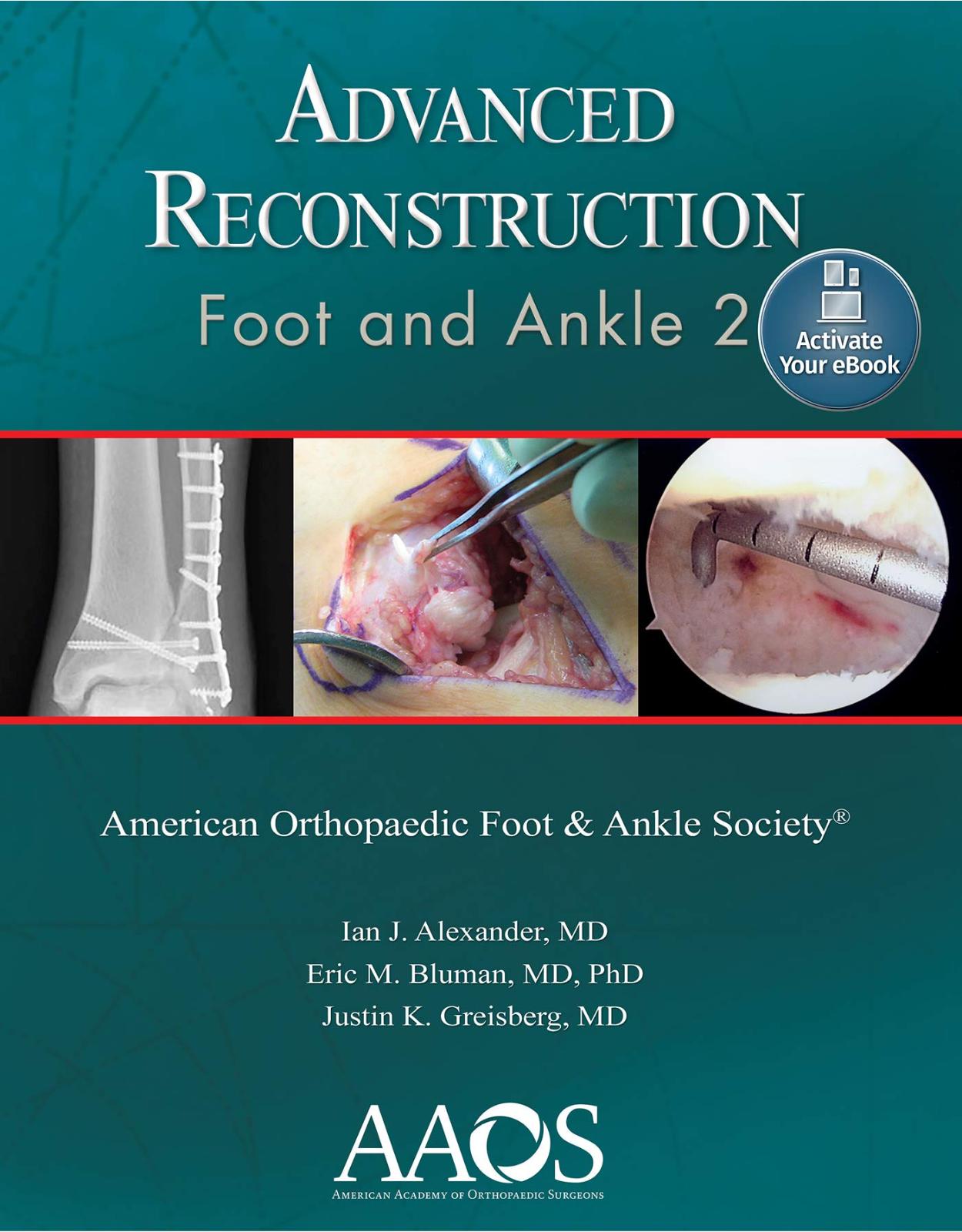
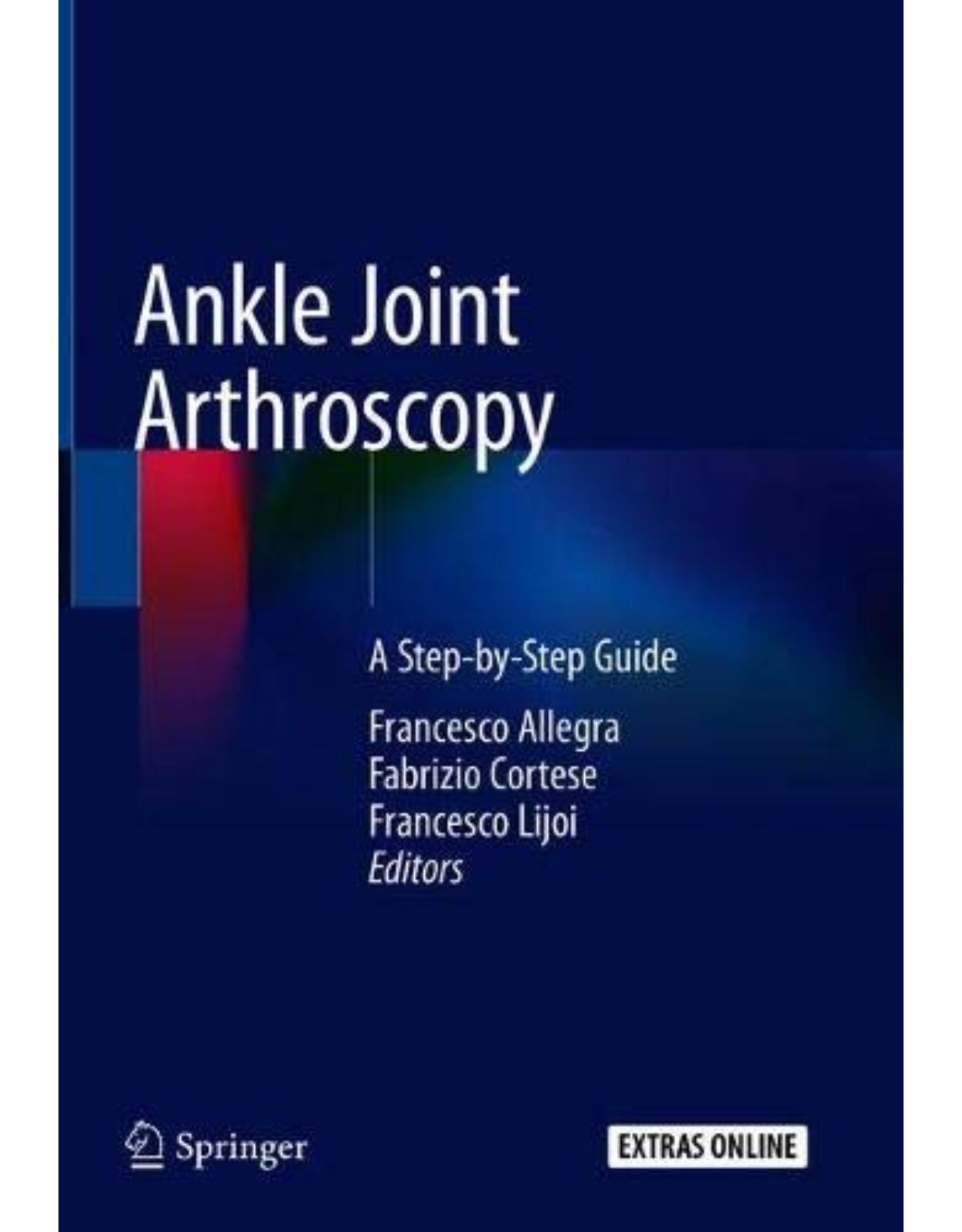
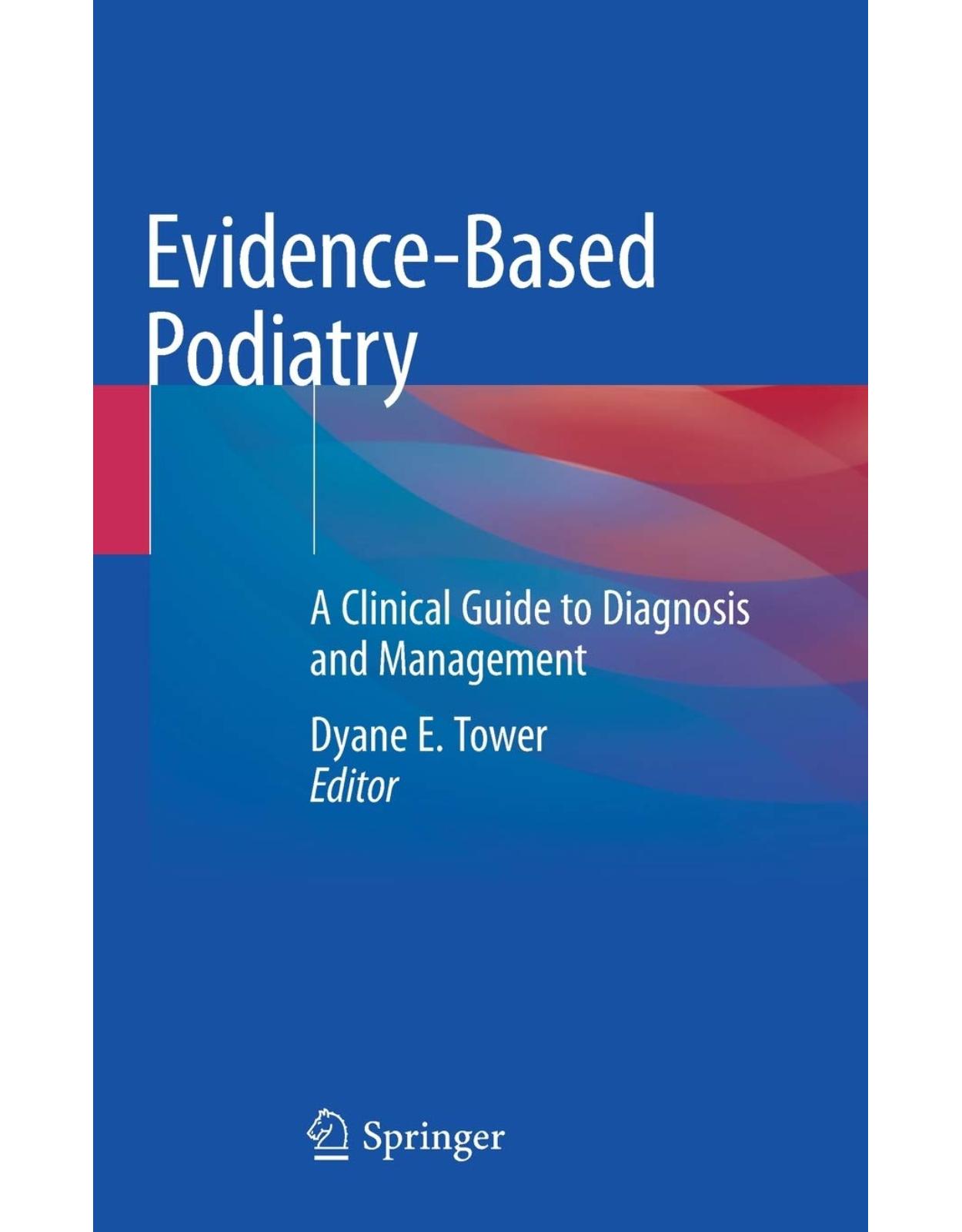
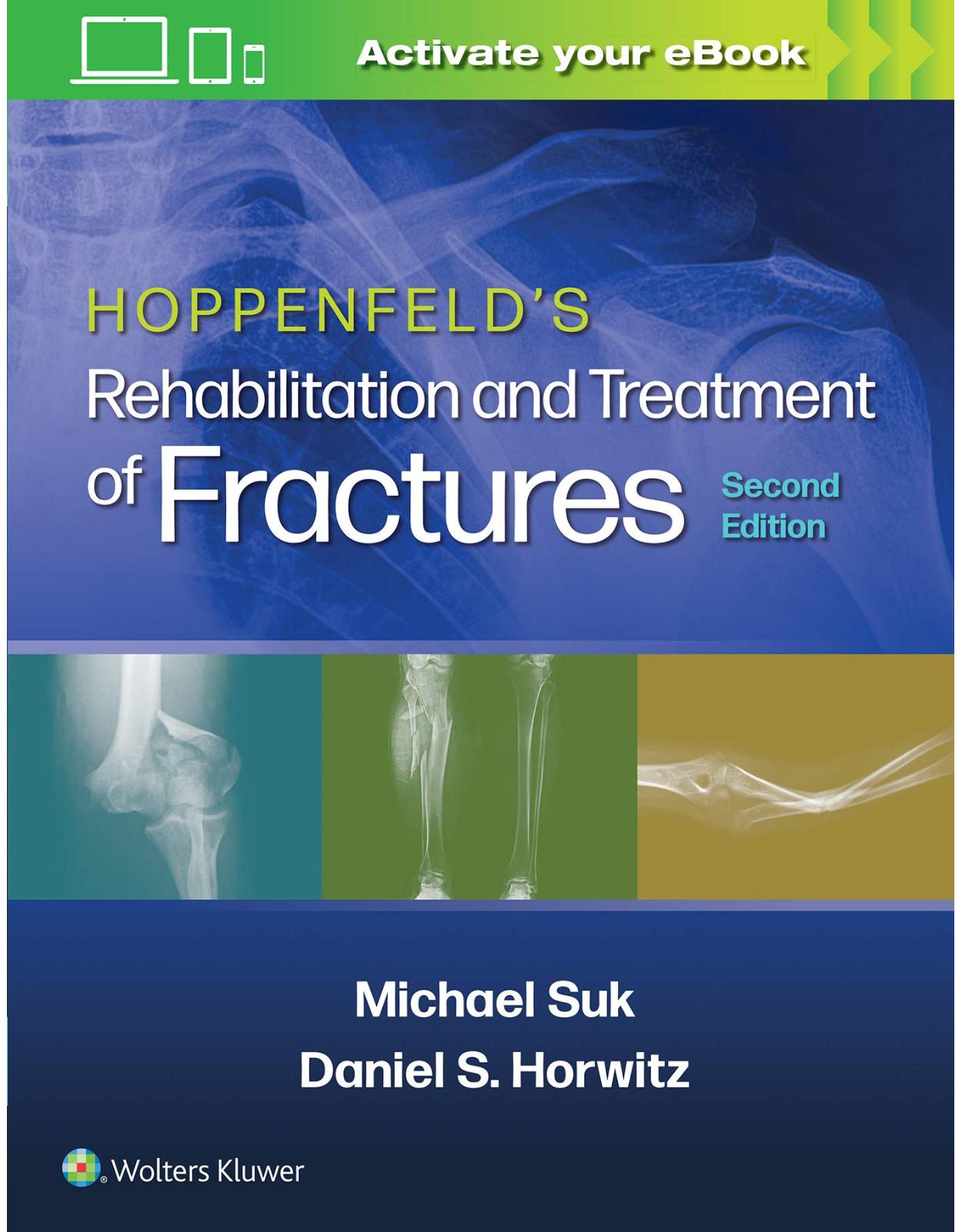
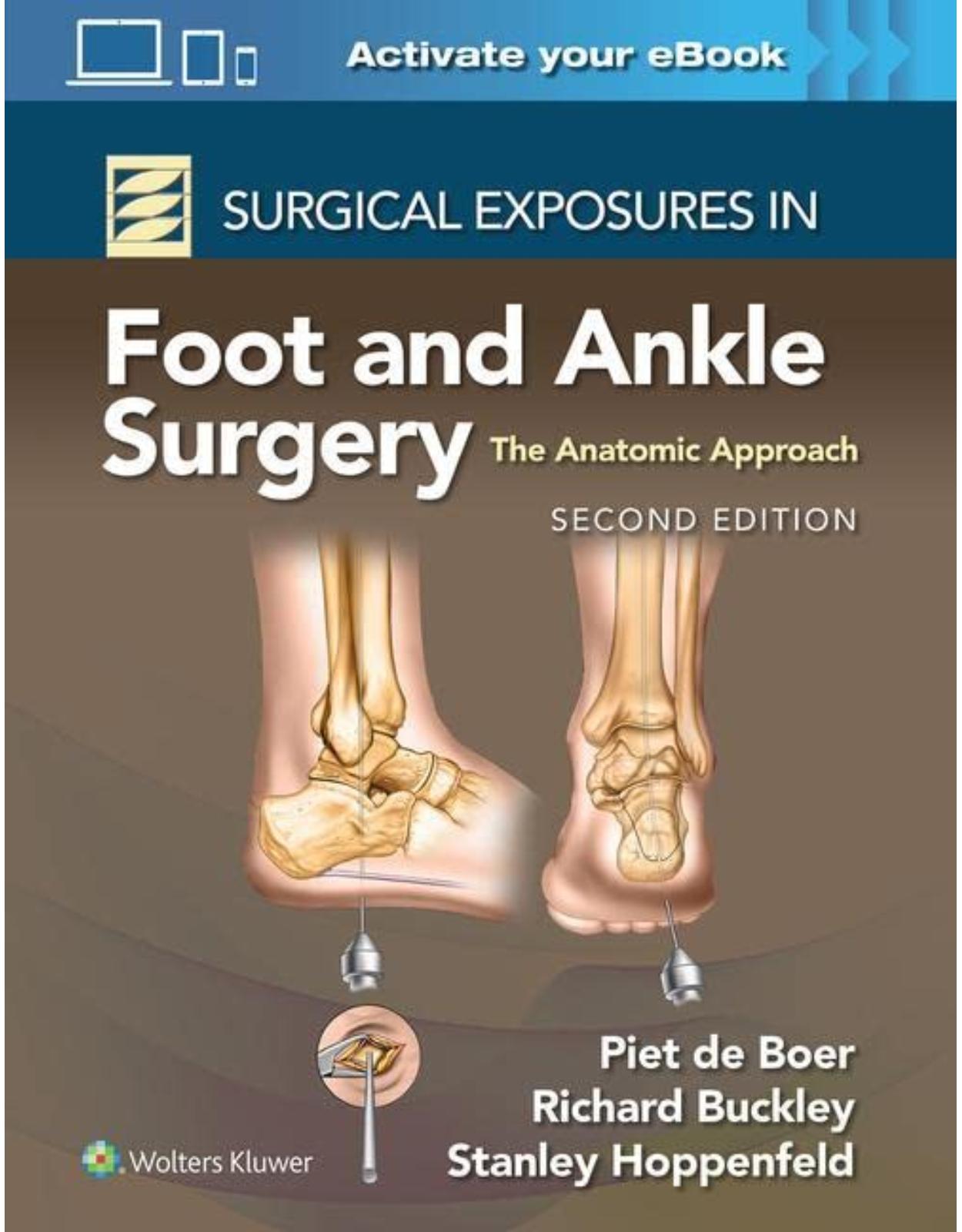
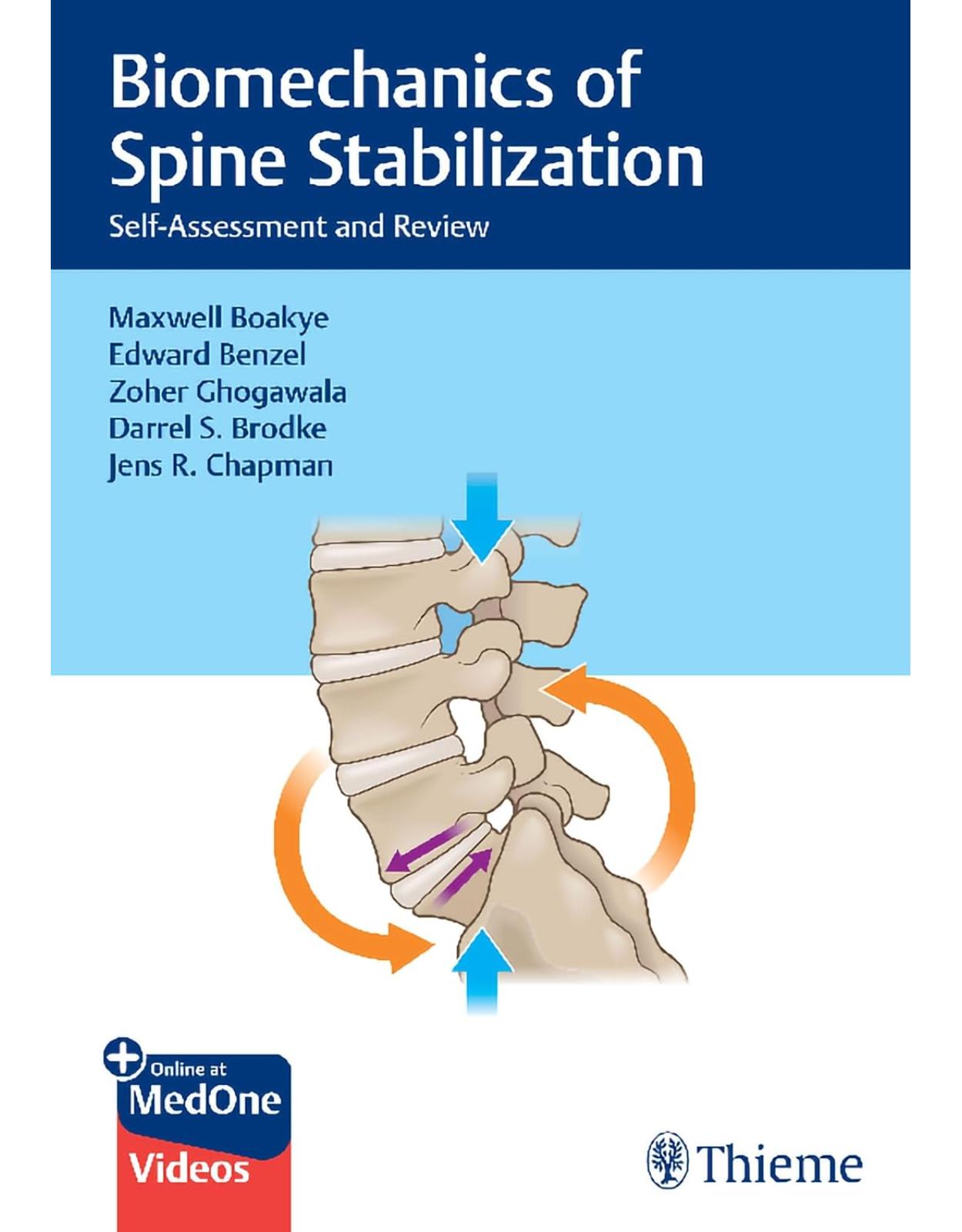
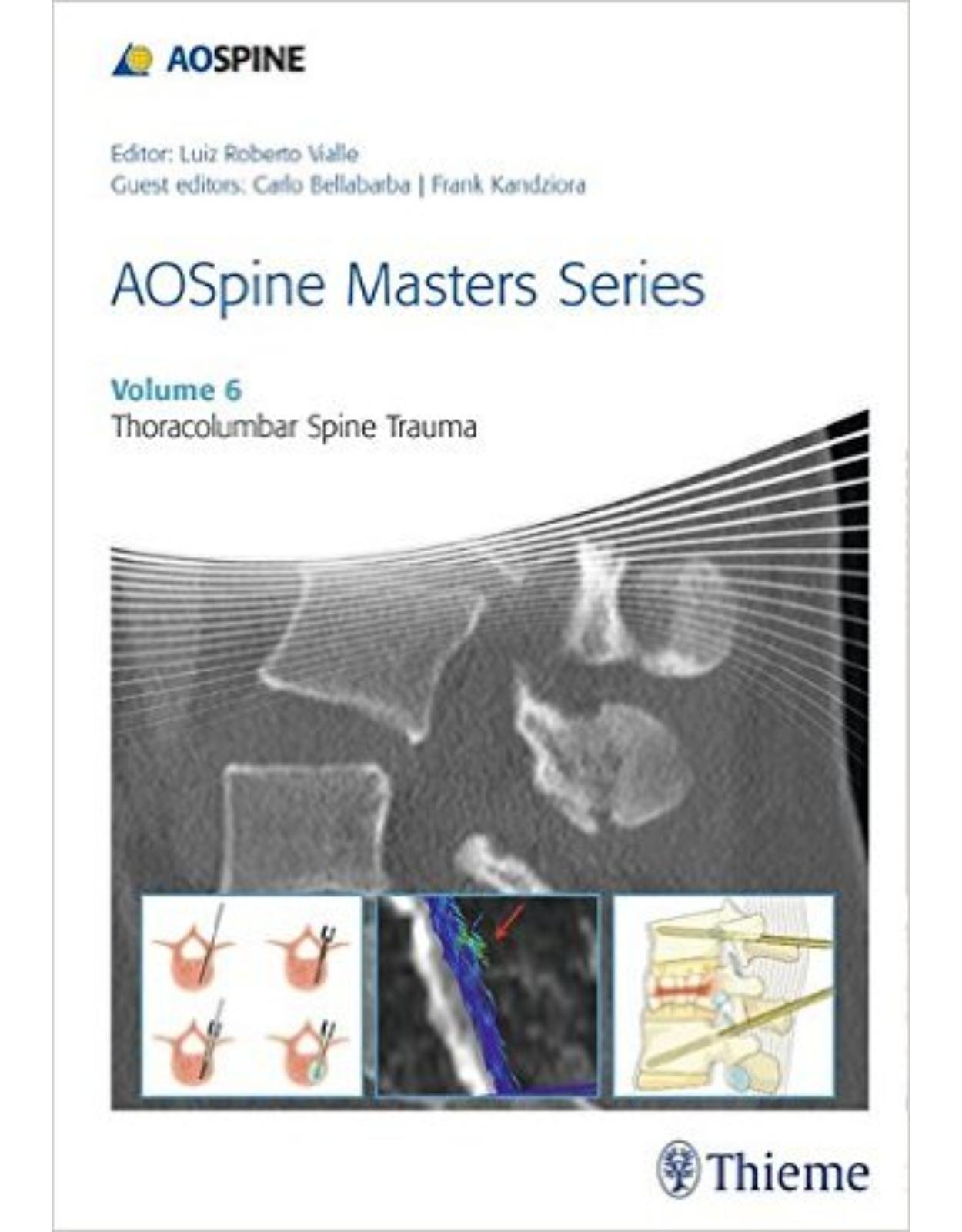
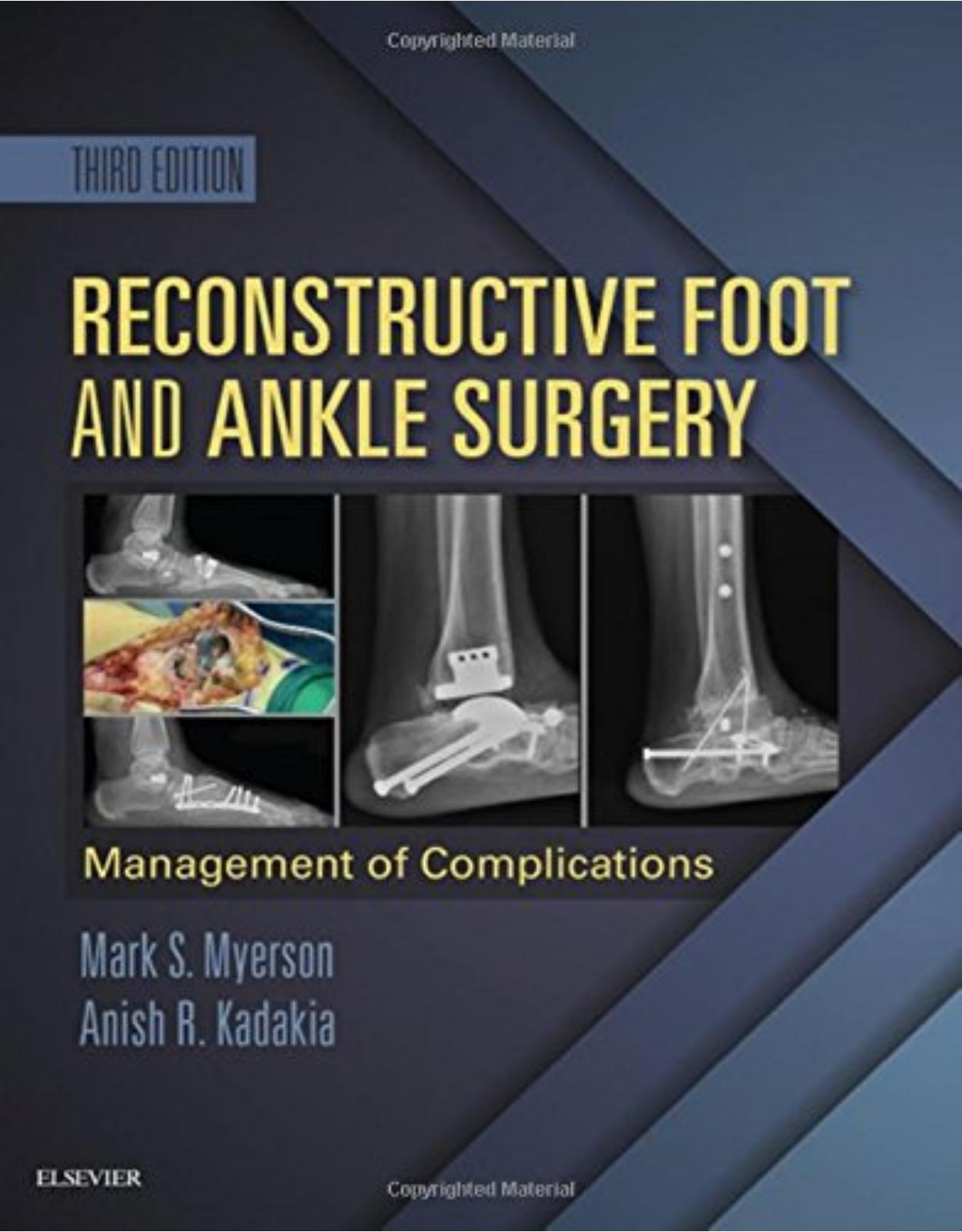
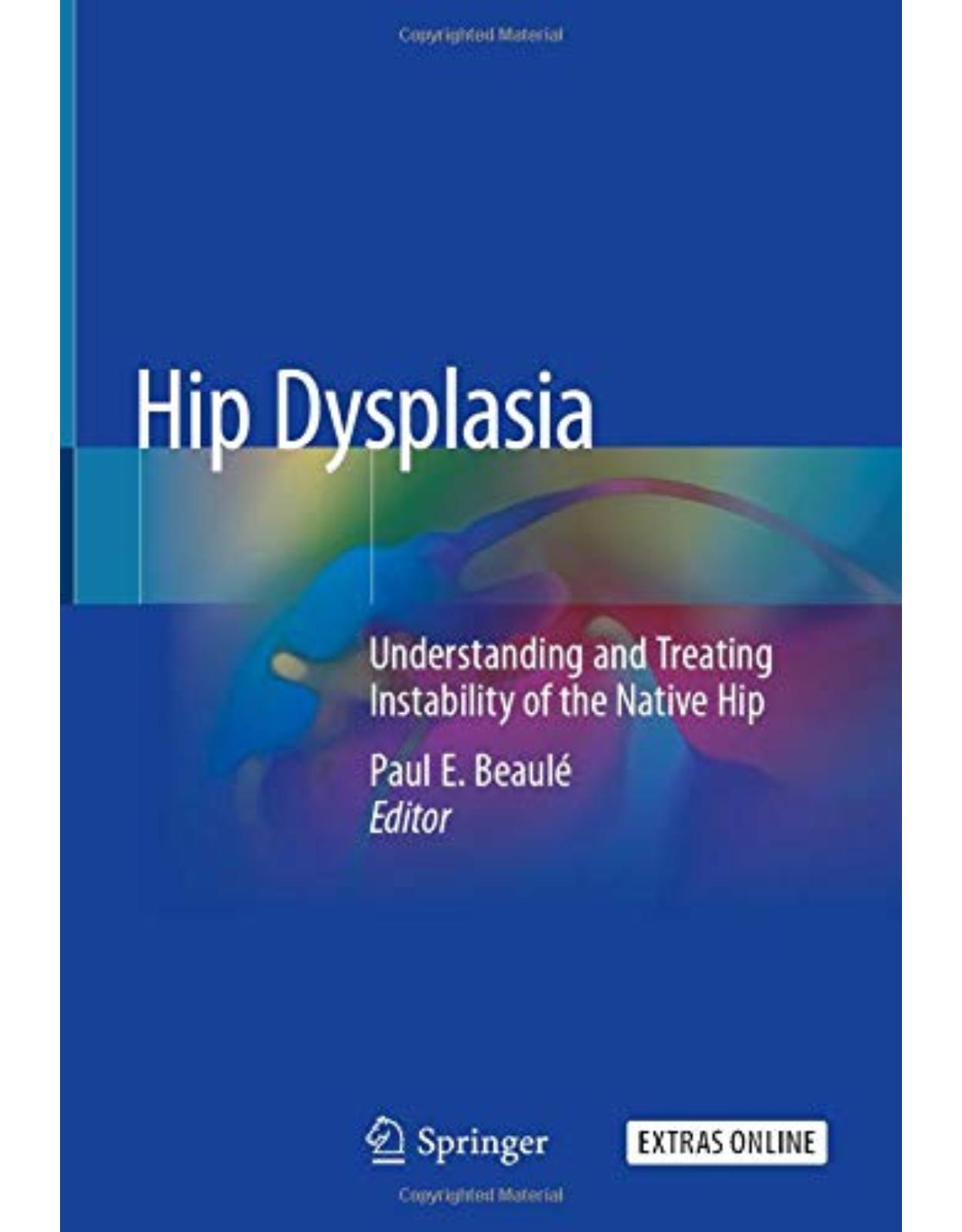
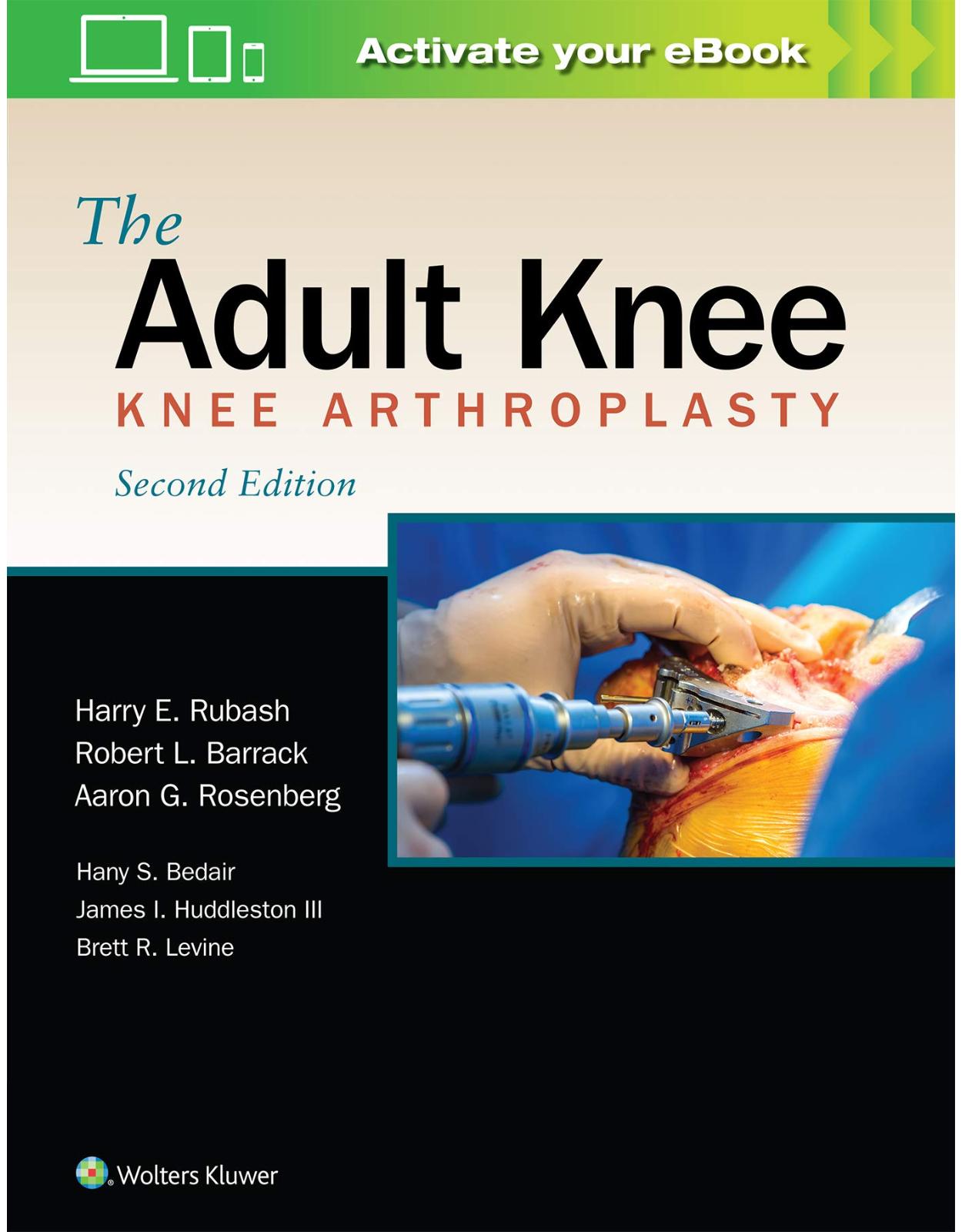
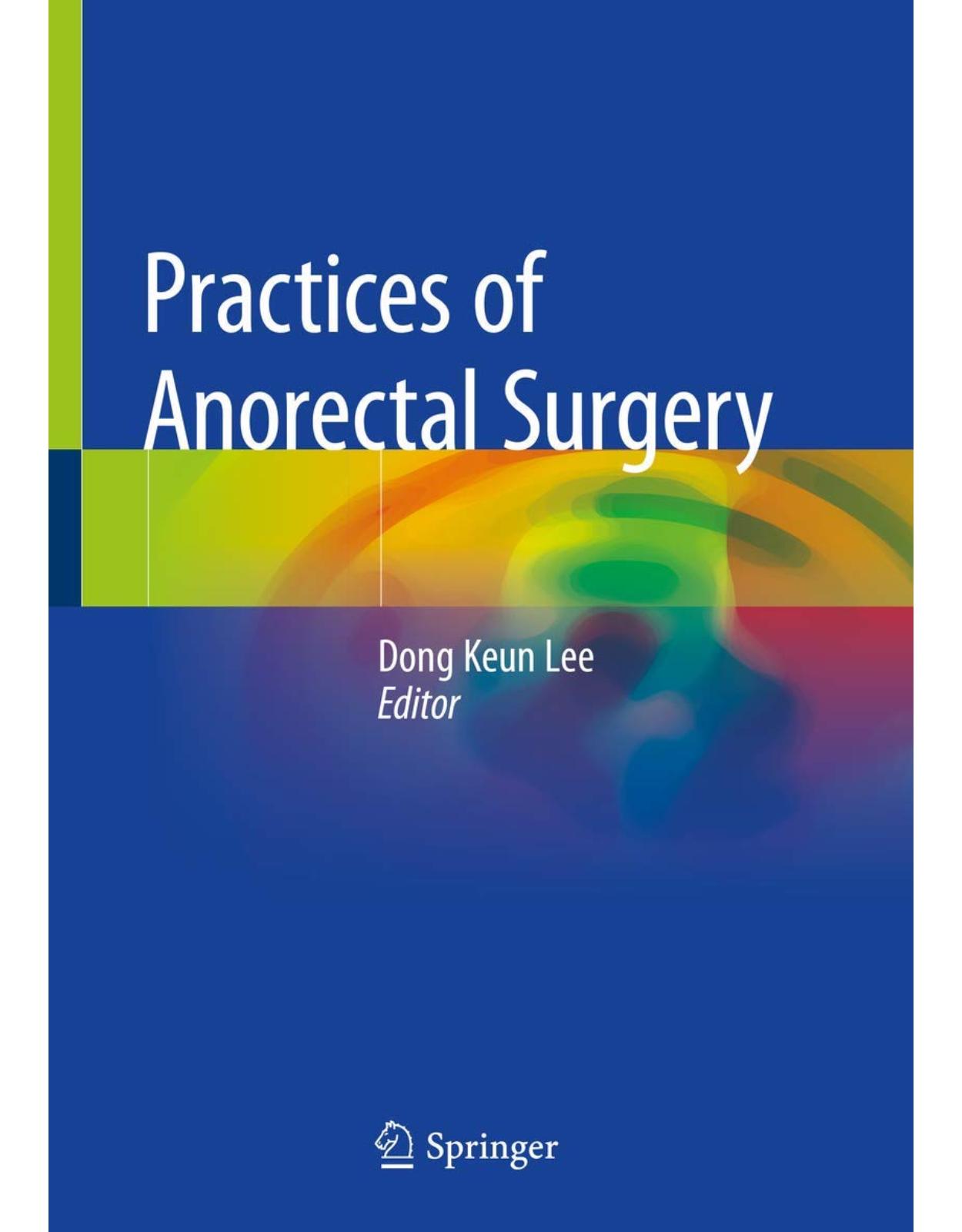
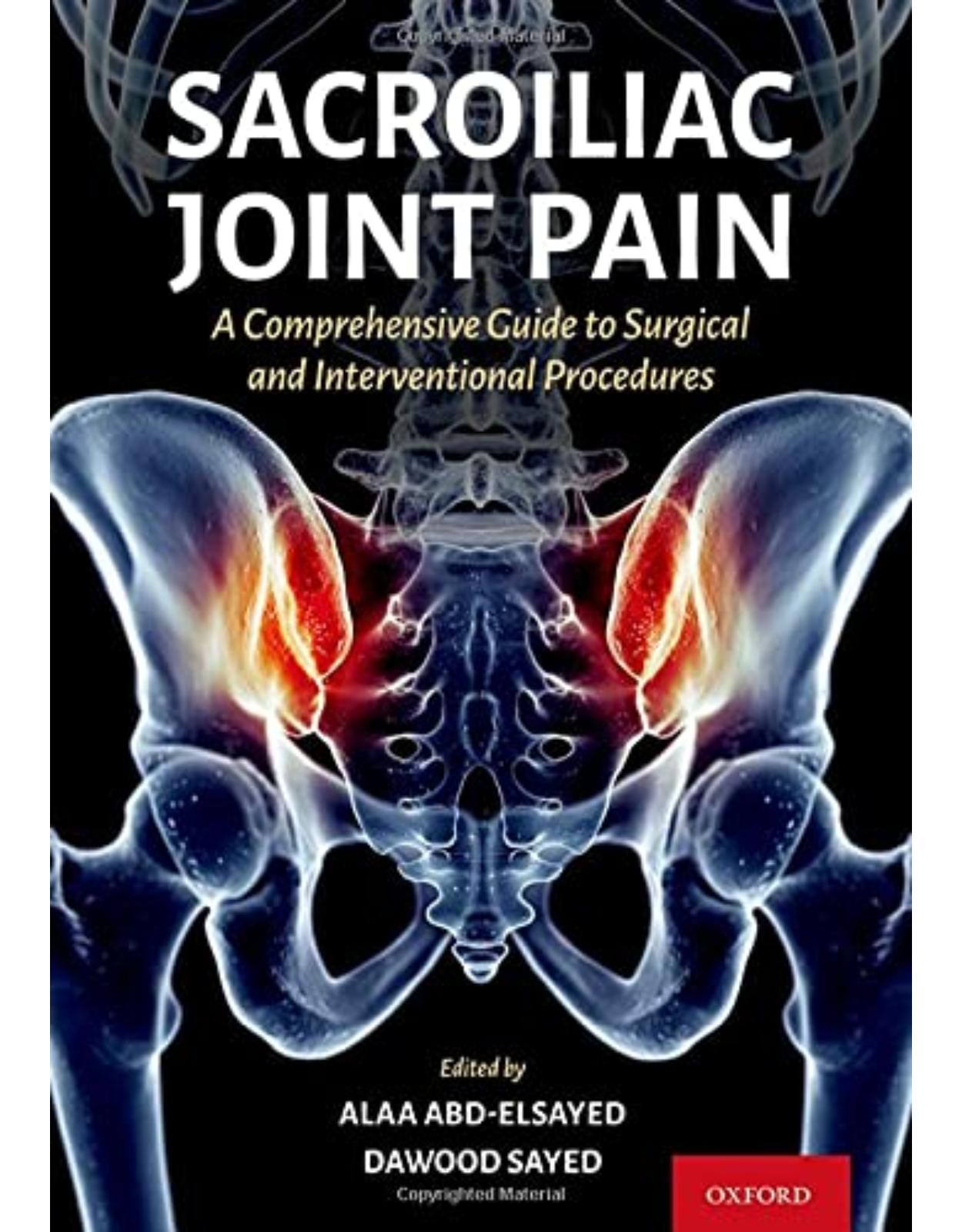


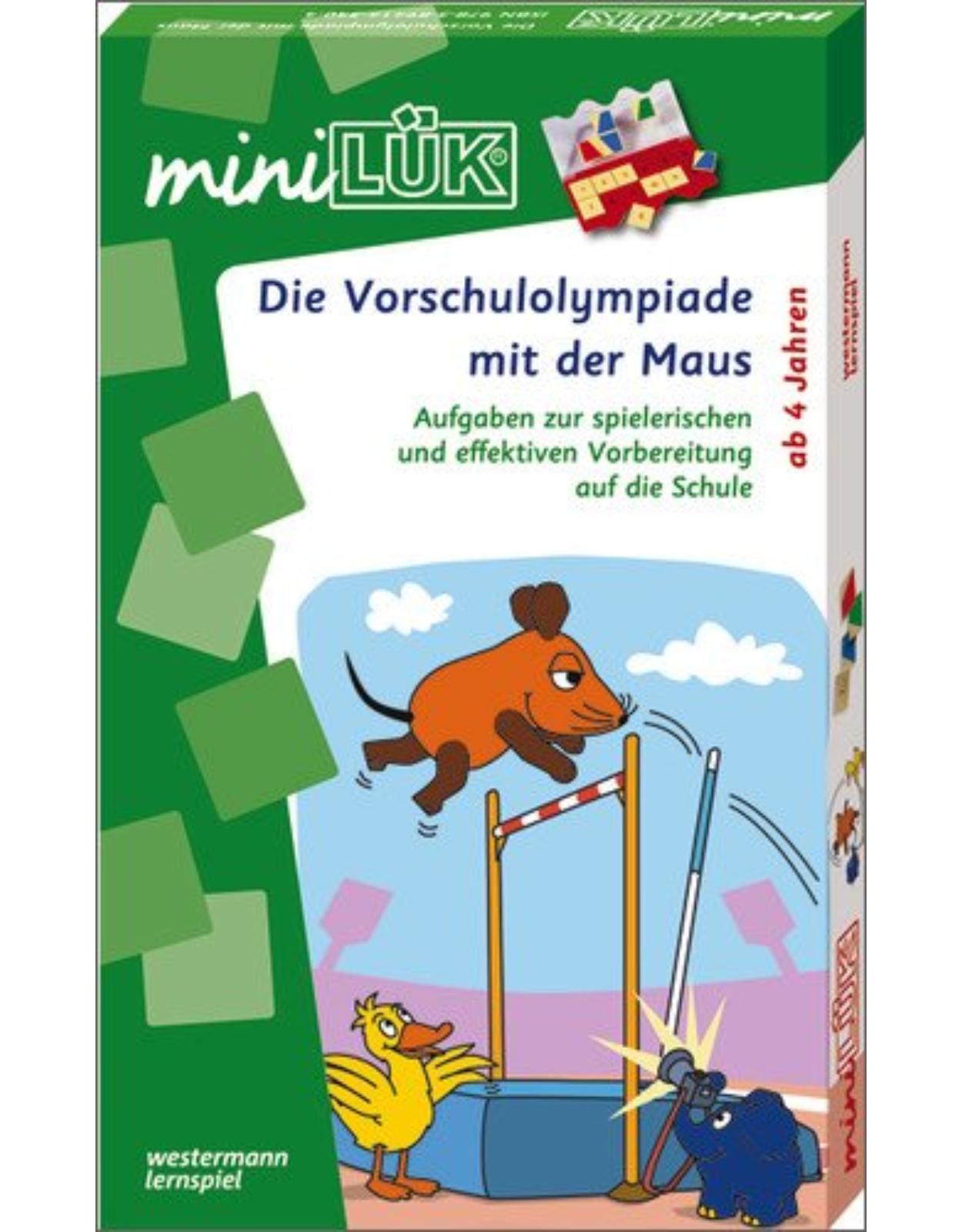

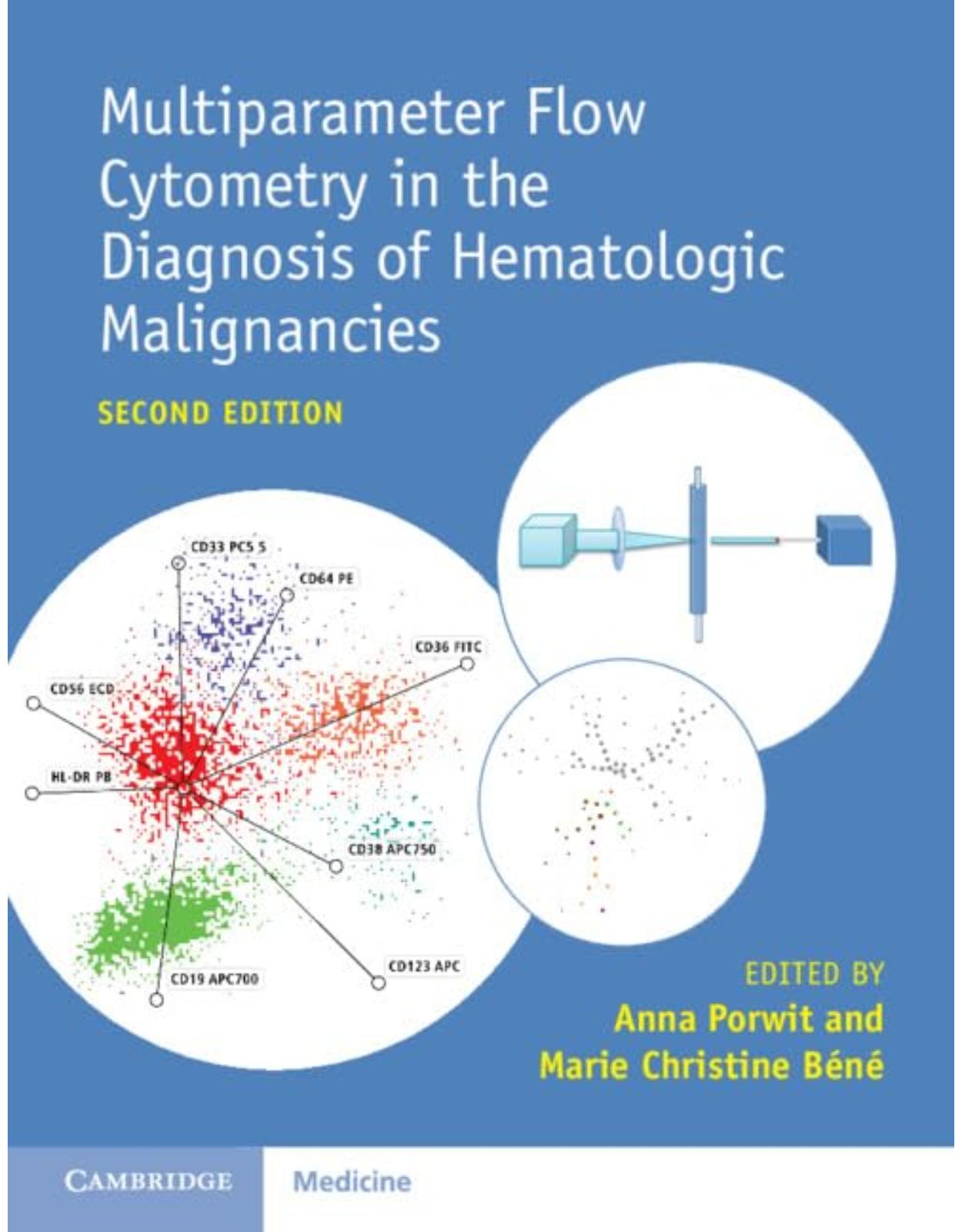
Clientii ebookshop.ro nu au adaugat inca opinii pentru acest produs. Fii primul care adauga o parere, folosind formularul de mai jos.